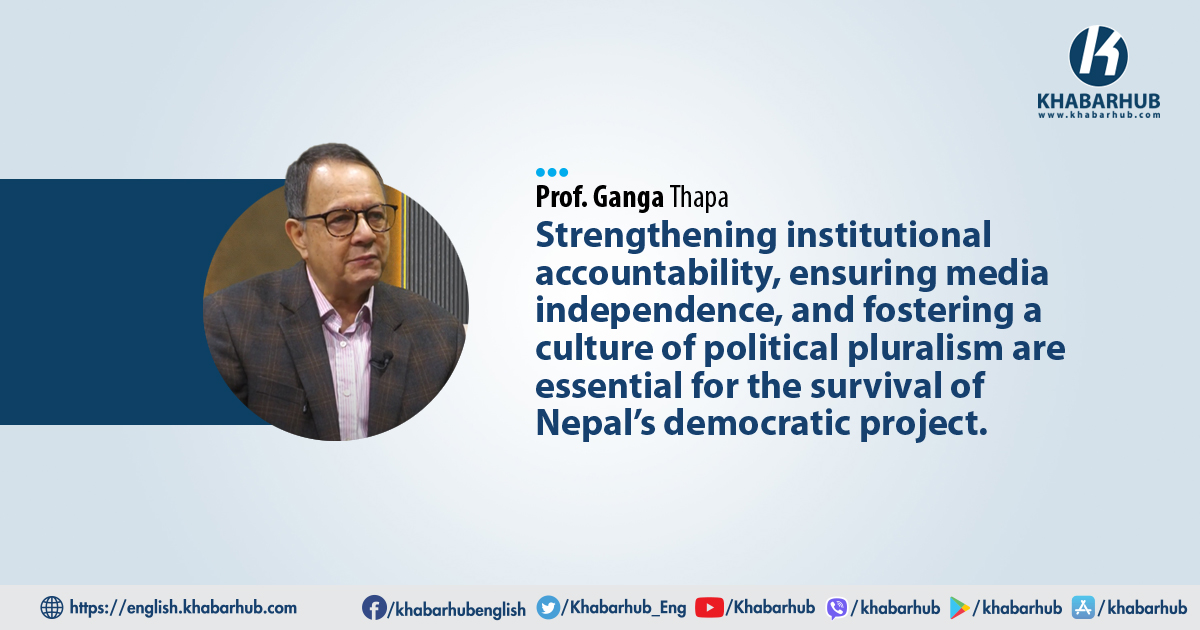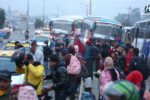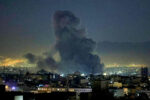Nepal is currently grappling with economic disorientation and political instability, marked by intense rivalries and tensions.
This environment has facilitated the emergence of shadow networks that intertwine elements of the Nepali state with criminal organizations, perpetuating disorder and obstructing democratic consolidation.
Despite influential voices advocating for reform, these entrenched networks have exacerbated governance challenges, making it increasingly difficult for the country to transition toward a more stable and democratic political structure.
Drawing on Robert Putnam’s seminal study of regional variations in Italy, Nepal stands out as one of the most ethno-linguistically heterogeneous societies.
The country remains in a political deadlock between forces seeking to maintain the status quo and those advocating for transformative change.
Politicians, leveraging their influence and, in some cases, Machiavellian strategies, have contributed to Nepal’s constrained and problematic political liberalization.
The growing use of defamation laws, cybercrime legislation, and vague provisions on national security to target critics illustrates how Nepal’s legal framework is being weaponized to stifle political opposition and independent journalism.
The absence of a cohesive political vision, coupled with persistent elite maneuvering, has led to governance paralysis, leaving the aspirations of democracy largely unfulfilled.
Writing from the perspective of democratic transition following the collapse of communist regimes, social revolutions are often marked by profound shifts in class relations, along with material and symbolic transformations in both individual and collective life.
However, Nepal continues to face significant barriers to such change. Deep-seated clientelism, ethnic divisions, traditional value structures, and entrenched socioeconomic inequalities continue to marginalize large segments of the population.
The political elite, rather than fostering inclusive governance, have exploited these divisions for personal and factional gains.
Furthermore, the rise of new ruling elites has compounded governance challenges, creating collective action dilemmas that hinder the country’s progress toward stability and inclusive development.
Moreover, the prospects for social revolution in Nepal hinge on a critical examination of the country’s democratic resilience in addressing the most deeply entrenched social and economic challenges.
These include pervasive economic stagnation, the dominance of a Faustian capitalist model that prioritizes short-term gains and material growth over long-term sustainability, and the disruptive forces of globalization.
Additionally, Nepal faces an emerging crisis of democratic governance, compounded by growing perceptions of existential threats that further destabilize the political landscape.
The erosion of state legitimacy, fueled by rampant corruption and a lack of accountability, has led to widespread public disillusionment with democratic institutions.
A defining trait of Nepali politics is the strategic use of anti-corruption rhetoric by those in power.
While presented as a commitment to reform, it often serves as a smokescreen, concealing entrenched corruption and clientelism within the political system.
Without significant reforms, these factors may render Nepal’s democratic experiment increasingly fragile.
The role of media pundits, particularly in assessing quality ratings linked to freedom of expression, remains an underexplored yet critical factor in evaluating Nepal’s democratic legitimacy.
Recent developments suggest a troubling trend of democratic erosion, manifesting through structural, conjunctural, and behavioral shifts that influence institutional behavior.
These shifts shape both the supportive and abusive tendencies of political elites, ultimately determining the resilience of democratic norms.
The instrumentalization of media for political gain has further undermined public trust in journalism, with state and non-state actors alike seeking to manipulate narratives for ideological or economic purposes.
In a functioning democracy, legal frameworks serve as necessary constraints on political power, providing normative mechanisms for regulation.
When the rule of law is upheld, opposition activities are recognized as legitimate, ensuring that political engagement occurs within a structured, lawful framework.
This allows elected officials to navigate governance through negotiation, conflict resolution, and consensus-building.
However, under a system of rule by law, governing authorities wield discretionary power to suppress dissent, often criminalizing political mobilization and stifling opposition voices.
The undermining of digital democracy reflects broader patterns of executive aggrandizement, where elected leaders consolidate power through increasingly repressive means.
Such legal environments not only obstruct democratic consolidation but actively facilitate authoritarian tendencies.
The growing use of defamation laws, cybercrime legislation, and vague provisions on national security to target critics illustrates how Nepal’s legal framework is being weaponized to stifle political opposition and independent journalism.
A case in point is the proposed legislation on social media regulation introduced by the Arzu-Khadga Prasad-led government.
This bill exemplifies an effort to erode legal protections for individual freedom of expression, serving as a strategic tool for consolidating power.
By imposing regulatory constraints on digital platforms, the legislation effectively weakens the organizational capacities of opposition groups, curtails political discourse, and empowers public officials to function as arbiters of acceptable speech.
In doing so, the state monopolizes public spaces, transforming them into arenas for reinforcing political authority rather than fostering democratic deliberation.
The chilling effect on free speech is particularly concerning, as it discourages civic engagement and limits the ability of marginalized groups to voice their concerns.
Nepal’s democratization has been deeply influenced by money-driven politics, where candidates lacking morals and integrity entice voters with financial incentives during election campaigns.
Adding to this, electoral candidates are often compelled to funnel money to party bosses to become a party candidate, reinforcing a system of political patronage.
This already corrupt landscape is further exacerbated by the censorship of social media, restricting public discourse and accountability.
This censorship can be seen as the culmination of a kakistocratic triad—from the despotic rule of the Arzu-Oli eras to a phase of political adventurism—ultimately contributing to a democratic backlash.
The recycling of political elites, rather than the infusion of fresh leadership, suggests that Nepal remains trapped in a cycle of patronage-driven governance.
The undermining of digital democracy reflects broader patterns of executive aggrandizement, where elected leaders consolidate power through increasingly repressive means.
As digital spaces become central to political mobilization, their regulation becomes a key battleground in Nepal’s democratic trajectory.
This trend reflects a broader pattern of executive autocratization, where legal instruments are weaponized to centralize control at the expense of institutional checks and balances.
If left unchecked, such measures risk entrenching authoritarian governance under the guise of legal legitimacy, further accelerating Nepal’s democratic decline.
The absence of meaningful political opposition and the fragmentation of civil society have only exacerbated this issue, as there are fewer countervailing forces capable of challenging the state’s increasingly illiberal policies.
The formation of a government under Khadga Prasad’s leadership, alongside figures such as Arzu Rana, the spouse of Sher Bahadur Deuba, does not signify a new phase of political reform in Nepal.
It neither addresses key theoretical debates on federalism and secularism nor fundamentally alters the country’s socio-economic conditions to foster democratic values in line with global democratic norms.
Instead, this political maneuver appears to serve as a means to obscure allegations of corruption linked to Sher Bahadur, Khadga Oli, and their respective administrations during their tenures as prime ministers.
Globalization has undoubtedly facilitated new information and communication technologies (ICTs), enabling the rapid movement of market data, intelligence, and capital across the world (Yau 2004).
However, without a robust and independent media, the effectiveness of democratic choice may be restricted, and government accountability may erode.
Strengthening institutional accountability, ensuring media independence, and fostering a culture of political pluralism are essential for the survival of Nepal’s democratic project.
The recycling of political elites, rather than the infusion of fresh leadership, suggests that Nepal remains trapped in a cycle of patronage-driven governance.
More concerning is the systematic crackdown on political liberties, particularly press freedom, through the strategic deployment of coercive rhetoric.
A free and independent media is a cornerstone of democracy, serving as a watchdog against corruption and authoritarian tendencies.
However, the increasing suppression of journalistic dissent in Nepal signals an alarming drift toward autocracy.
By restricting media scrutiny and silencing critical voices, the ruling elites not only undermine democratic accountability but also erode the foundational principles of an open society.
If this trend continues, Nepal risks further democratic backsliding, where political power is consolidated at the expense of transparency, public discourse, and fundamental freedoms.
As Nepal stands at a crossroads, the choices made by its political leaders will determine whether the country can reverse its democratic regression or continue down the path of illiberalism.
Strengthening institutional accountability, ensuring media independence, and fostering a culture of political pluralism are essential for the survival of Nepal’s democratic project.
Without these critical interventions, the country risks succumbing to the very authoritarian tendencies that democracy was meant to prevent.
(Views expressed in this opinion are the writer’s and do not necessarily reflect the editorial stance of Khabarhub — Editor)









Comment